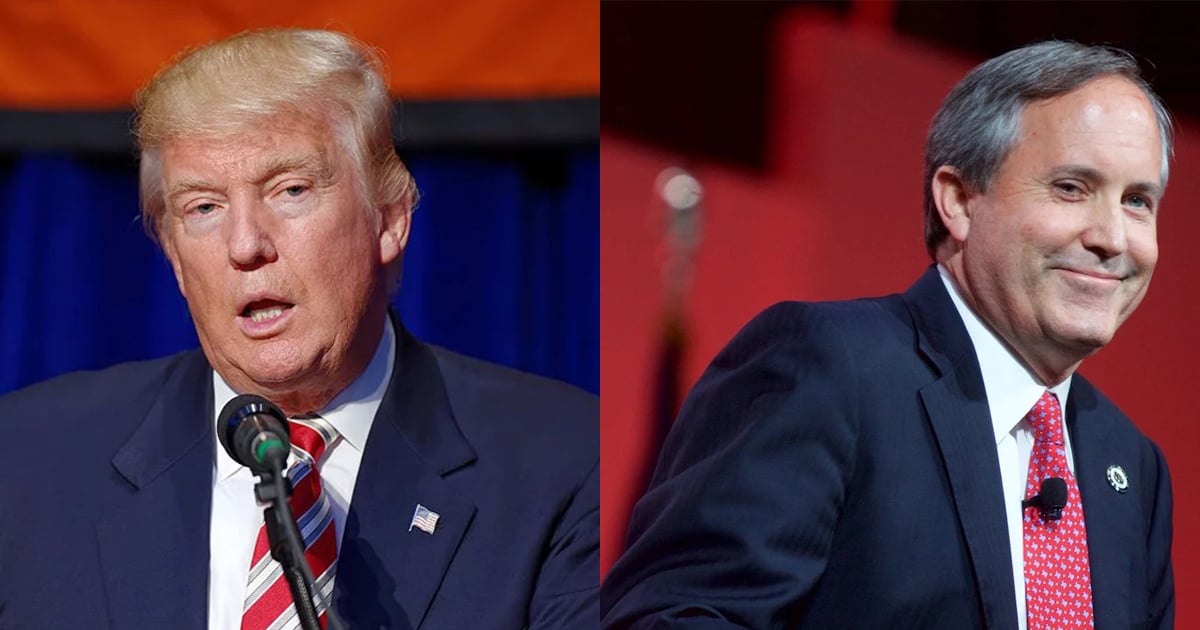
The Money Behind the Fight to Undermine Medicaid
Documents show how a conservative think tank hinders expansion of health insurance in Texas.

Above: Clockwise from top left: Gov. Rick Perry, Lt. Gov. David Dewhurst, Sen. Ted Cruz, Sen. John Cornyn
This story was produced in partnership with The Guardian and the Portland (Maine) Press Herald.
![]() On April 1, Texas’ most powerful elected officials gathered at the state Capitol to rail against Medicaid. In a packed press conference room with protesters shouting outside the door, Republican Gov. Rick Perry, Lt. Gov. David Dewhurst, and U.S. Sens. John Cornyn and Ted Cruz made clear to reporters that Texas—the state with the nation’s largest uninsured population—wouldn’t expand the program that provides health insurance to the poor and disabled.
On April 1, Texas’ most powerful elected officials gathered at the state Capitol to rail against Medicaid. In a packed press conference room with protesters shouting outside the door, Republican Gov. Rick Perry, Lt. Gov. David Dewhurst, and U.S. Sens. John Cornyn and Ted Cruz made clear to reporters that Texas—the state with the nation’s largest uninsured population—wouldn’t expand the program that provides health insurance to the poor and disabled.
![]() Under the Affordable Care Act, the federal government would have largely paid for Medicaid to cover an additional 1.5 million Texans. But the state’s Republican leaders instead called for the federal government to “block grant” Medicaid, giving them a lump sum of money to run the program as they see fit. Dewhurst compared expanding the current Medicaid system to drug addiction. “Would you consider expanding a broken system? Of course not, of course not,” Dewhurst said. “It’s like a drug dealer. You give them their first hit free and then they’re hooked for years and years.”
Under the Affordable Care Act, the federal government would have largely paid for Medicaid to cover an additional 1.5 million Texans. But the state’s Republican leaders instead called for the federal government to “block grant” Medicaid, giving them a lump sum of money to run the program as they see fit. Dewhurst compared expanding the current Medicaid system to drug addiction. “Would you consider expanding a broken system? Of course not, of course not,” Dewhurst said. “It’s like a drug dealer. You give them their first hit free and then they’re hooked for years and years.”
The group that organized the press conference and supplied the policy prescription was the Texas Public Policy Foundation (TPPF), an influential think tank funded largely by right-wing foundations, corporations and wealthy Texans. TPPF has been instrumental in preventing increased spending on Medicaid and other social welfare programs in Texas. Perry, Cruz, Cornyn and other politicians frequently turn to TPPF to help make the intellectual case for reducing government involvement in health care. The press conference was part of TPPF’s multi-year strategy to remake Medicaid in accordance with free-market principles. The think tank would later claim credit for helping block Medicaid expansion in Texas under Obamacare.
Now, new documents show how TPPF and another conservative group, the Texas Conservative Coalition Research Institute, coordinate their attacks on the public sector with a far-flung network of conservative organizations and funders. The documents— obtained by The Guardian and shared with the Observer—contain 40 funding proposals from 34 states, offering a glimpse of the conservative agenda for 2014. The proposals were shepherded by the State Policy Network, a coalition of groups that act as incubators of right-wing policy at the state level. The proposals were to be funded by the Searle Freedom Trust, a private foundation that pumps money into right-wing, corporate-friendly organizations. The intermediary between Searle and the State Policy Network, The Guardian reports, was Stephen Moore, an editorial writer with the Wall Street Journal and an occasional speaker at TPPF events, including a January “plenary session” Moore hosted with Sens. Cruz and Cornyn.
The documents include a TPPF grant request to Searle to fund continuing attacks on Medicaid. In its application, TPPF claims credit for blocking Medicaid expansion in Texas and promises to push for looser federal requirements, including a block-grant approach that Gov. Perry has long sought that could result in tighter restrictions and fewer people covered by the government insurance program.
“[S]topping Medicaid expansion is just the first step,” TPPF’s application to Searle states. The “missing piece to complete our message is an economic forecast” showing how block-granting Medicaid would “bring significant savings” to the state.
Founded in 1989, the TPPF has grown into one of the most influential state-level think tanks in the nation. Its leaders enjoy easy access to the state’s top elected officials; Ted Cruz worked for the organization—heading its Center for Tenth Amendment Studies—before he ran for the U.S. Senate.
As the Observer reported in 2011, TPPF has in the past been accused of soliciting corporate donations and then tailoring its research and conclusions to fit the needs of donor-clients. In 2012, the Observer obtained a list of corporate donors to TPPF that showed the organization is funded largely by right-wing foundations, corporations and wealthy individuals, including the Koch brothers, Altria and Verizon.
“Most think tanks work for their funders, and TPPF’s donors are a Who’s Who of Texas polluters, giant utilities and big insurance companies,” Craig McDonald, director of watchdog group Texans for Public Justice, told the Observer in 2012. “TPPF is thinking the way its donors want it to think.”
TPPF Executive Director Arlene Wohlgemuth denied that the foundation predetermines the outcome of its work. “We make our methodologies and research public explicitly because we expect and want people to investigate and challenge them as we have for the past 25 years,” she wrote in an email. “Block grants offer states considerable flexibility to innovate and adapt to the unique needs of its citizens versus a one-size-fits-all approach mandated from Washington, D.C.”
The newly revealed documents include a TPPF request for $40,000 from Searle to “prove that our proposed Medicaid reform program will efficiently provide quality care to Texas by producing a detailed economic model of our proposed program.” In the proposal, TPPF promises to build on previous research by constructing a “financial model” that will demonstrate that block-granting Medicaid will save Texas money, and then use that research to garner attention from the media.
The documents also show that TPPF and its backers view the research the group conducts as a tool to prod lawmakers into action and to inject conservative ideas into the mainstream. In 2012, Searle gave TPPF $30,000 to produce two Medicaid reports that “served as the intellectual foundation for meetings with Governor Perry, US Senators and Representatives,” the document states. (The list of donors obtained by the Observer last year shows that the Searle Freedom Trust donated $95,000 to the foundation in 2010.)
In its request for funding, TPPF repeatedly claims that its research on Medicaid translated into concrete political action. “TPPF met repeatedly with Governor Perry’s staff and key state lawmakers to ensure that Texas pursues Medicaid reform and refuses expansion. We also organized a high-profile press conference with state leadership to assert our resolve.”
The group also states in its application to Searle that Cornyn “has agreed to champion block grant legislation in the U.S. Senate” and that Texas Congressmen Jeb Hensarling and Michael Burgess “have pledged to support the legislation and identify an appropriate sponsor in the U.S. House.” Cornyn’s office didn’t respond to a request for comment. For his part, Gov. Perry has repeatedly, and unsuccessfully, applied for a waiver from the federal government to allow Medicaid recipients in Texas to use government funds to buy coverage directly from private insurers. In September, he ordered the state health department to prepare another application.
TPPF’s action plan, however, goes beyond just Texas politicians and media. TPPF writes in its application that the American Enterprise Institute and “TPPF’s sister think tanks throughout the country have reached out for more information about how to advance block grants and reforms.” TPPF offers to “provide a blueprint for other state groups to replicate.”
A second Texas funding proposal obtained by The Guardian comes from the Texas Conservative Coalition Research Institute, a think tank overseen by conservative state legislators and business lobbyists. The Conservative Coalition Research Institute asks for $30,000 to produce two studies “demonstrating the benefits” of paying for public schools by replacing property taxes with a sales tax hike. Such proposals have gone nowhere, even in the Republican-dominated Texas Legislature, where many lawmakers support public education.
The Center for Public Policy Priorities, a liberal think tank based in Austin, has estimated that Texas would need to double its state sales tax, from the current 6.25 percent to more than 12 percent, to replace $22 billion in lost revenue from property taxes. Sales taxes are notoriously regressive and volatile as a source of government revenue, rising and falling on the rhythms of the economy.
In its proposal to Searle, the Conservative Coalition Research Institute promises to set up a “school finance reform task force” headed by conservative legislators in preparation for the next session of the Texas Legislature, in 2015. In the interim, the group offers to hold meetings around the state to promote the property tax abolition plan and send the study’s authors to testify at legislative committees. Scrapping the school property tax, the institute avows, would be “a landmark achievement … of the same magnitude of the labor law reforms in Wisconsin,” referring to Gov. Scott Walker’s throttling of public unions in that state.


